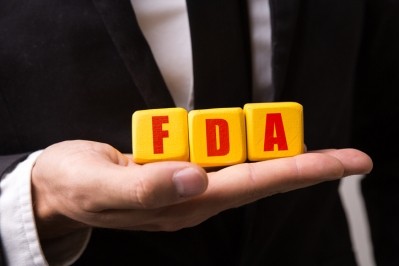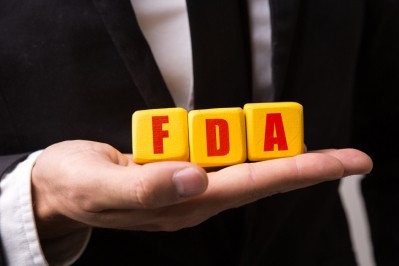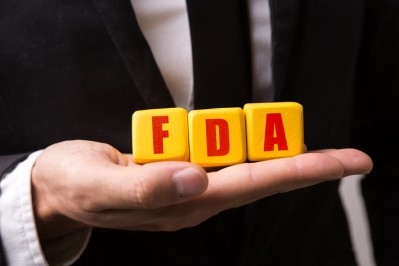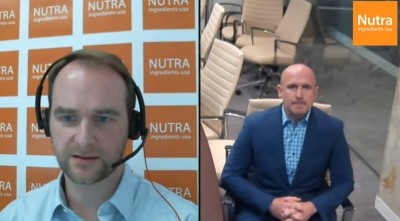FDA seizes Chinese imports over NDI status

The alert, which was issued Friday, covers products from two Chinese companies. In both cases the Chinese firms listed the products as higenamine, a stimulant. The products were seized under FDA’s Detention Without Physical Examination authority. The firms can petition to have the products released if they meet certain stipulations from the Agency.
Prominent industry critic Dr Pieter Cohen, MD, of Harvard Medical School, called higenamine into question in a 2018 paper published in the journal Clinical Toxicology. John Travis, PhD, of NSF International, and others, including researchers associated with the Dutch National Institute for Health and the Environment were listed as coauthors. The report analyzed the contents of 24 supplements that were labeled to contain higenamine or one of its synonyms, such as norcoclaurine or demethylcoclaurine.
Higenamine, according to the authors, is a stimulant ingredient that can be isolated from several botanical sources, including Aconitum carmichaelii and Nandina domestica. The authors said it “has beta-agonist activity with chronotropic and inotropic properties.”
In 2018 higenamine was a fairly new entrant on the list of dietary supplement ingredients. It seems to be part of the constant churn of new ingredients in the sports and weight loss categories, Travis said at that time. As stimulant ingredients are discredited or banned outright, product developers move on to others.
“I heard whispers about it right after the DMBA paper came out,” Travis told NutraIngredients-USA in 2018. “A raw material supplier came to us asking about it, though they were using one of the synonyms. I think it’s fair to say that this is the ‘next new thing’ after DMBA.”
Higenamine solidly linked to botanical source
Travis did say that unlike DMBA or DMAA, there is no debate about the botanical origins of higenamine. Whether the higenamine used in products that Cohen et al. tested came from plants or was synthesized is another question, one that was not covered in the study. Nor is there any information about the whether the Chinese products seized on Friday are actual botanical extracts or are synthetic versions.
The two Chinese companies named in the alert are Jingjiang Jiangyang Fine Chemicals Co., Ltd., based in Jiangsu, and Suzhou Win Health International Co.,Ltd., based in Dongtai City. Neither firm could be contacted for comment in time for the publication of this article.
Industry stakeholders welcome development
Marc Ullman, an attorney at counsel with the firm Rivkin Radler, said FDA’s move is a welcome one. Ullman has long criticized the Agency for its weak enforcement of the NDI provision. Ullman has often taken the position that if companies could put new ingredients onto the market without fear of reprisal, it would serve as a disincentive for responsible companies to go through the time consuming, expensive and potentially risky process of submitting an NDI Notification.
“This import alert has the potential to be particularly significant as it is the first time that FDA has acknowledged that failure to comply with the law as it applies to New Dietary Ingredients can be the basis for blocking an import of a dietary supplement product. While it’s taken the Agency 24 years to actually use this authority, the fact that it has finally take this kind of action may give hope to the numerous companies that have complied with the law and completed the New Dietary Ingredient Notification process yet are forced to compete with knock off products that are imported into the US every day without concern that FDA will take action to stop them at the border,” Ullman said.
“We’re excited about it if it is used for more than higenamine,” said Daniel Fabricant, PhD, president and CEO of the Natural Products Association. “We’ve pushed for this for some time. This is an important part of the statute (DSHEA) that needs to be fully implemented.”
Steve Mister, president and CEO of the Council for Responsible Nutrition had this to say: "CRN applauds FDA for its efforts to prevent illegal ingredients from entering the dietary supplement marketplace. Higenamine has not been notified to the agency as a new dietary ingredient, and was identified as a banned substance by the World Anti-Doping Agency (WADA) several years ago. CRN has previously cautioned consumers to avoid purchasing any products with this ingredient. CRN has also urged companies and recipients of higenamine here in the U.S. to be on alert to discontinue their affiliations with these sources and implement heightened testing of incoming ingredients. So the import recall is welcome news and long overdue."















